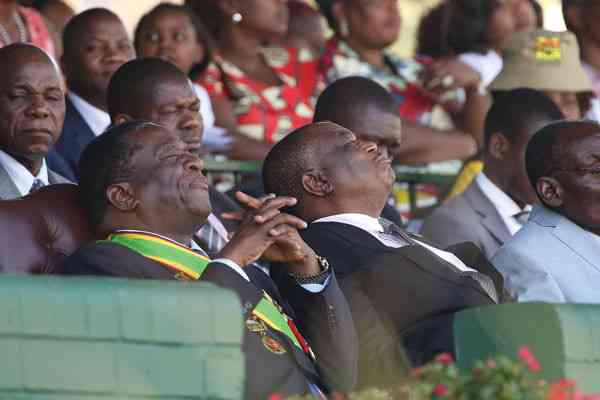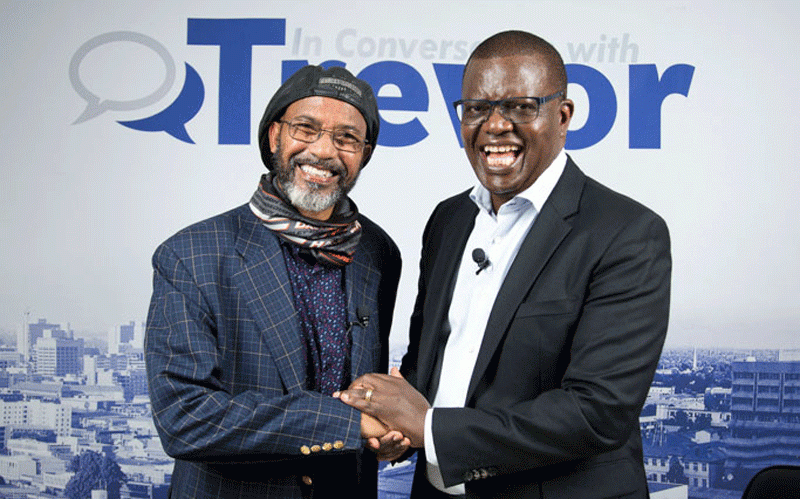
BY NOKUTHABA DLAMINI
Frustrated by the continued poor representation of women in Zimbabwean politics, lobby groups have started rolling out campaigns to prop up female candidates ahead of the 2023 harmonised elections.
In Zimbabwe, women make up 52,3% of the population, but the political leadership of the country’s legislative bodies and local authorities is dominated by men.
According to statistics from the Zimbabwe Electoral Commission (ZEC), 54% of the registered voters during the 2018 elections were women but in the parliamentary constituency polls, women won only 26 of 210 seats.
A 2018 study by Gender Links, a regional organisation promoting equal participation by women and men in all applications of private and public life, said there was a decline in female candidates in Zimbabwe’s local government elections.
Out of 6 800 candidates, who contested for seats in the country’s 92 local authorities, only 1 756 or 17% were female and overall results indicated that only 14% of the constituencies were won by women.
Zimbabwe’s National Assembly emerged with 30% female representation, a significant decline from 35% in the Eighth Parliament.
Senate figures improved slightly after the 2018 elections, but still fell short of the 50/50 gender parity threshold with only 35 out of 80 senators being female.
- Chamisa under fire over US$120K donation
- Mavhunga puts DeMbare into Chibuku quarterfinals
- Pension funds bet on Cabora Bassa oilfields
- Councils defy govt fire tender directive
Keep Reading
In an ambitious bid to turn the tide, Women’s Academy for Leadership and Political Excellence (Walpe) and Gender Links have embarked on separate campaigns in time for the forthcoming polls.
Gender Links, in partnership with the Local Government ministry, Zimbabwe Local Government Association, Women in Local Government Forum and the Commonwealth Local Government Forum, have begun lobbying for increased representation of women in local government.
The lobby has already convinced President Emmerson Mnangagwa to back proposals for a 30% quota for female councillors in Zimbabwe’s rural and urban councils in time for the next polls.
Priscilla Maposa, Gender Links Zimbabwe country manager, said various programmes were already underway to ensure more women would be voted into office in the forthcoming polls.
“These include 50/50 local level campaigns that raise awareness in communities on the need for an increase in the proportion of women at this level,” Maposa said.
“Gender Links will also be holding political party dialogue meetings where we will lobby political parties to address the issue of inequalities in decision-making at political levels.
“Over and above there will be interaction between the Women’s Parliamentary Caucus and local councillors through the Women in Local Government Forum to ensure cross-pollination of ideas on decision-making.”
Maposa revealed that Gender Links was also mentoring young women on governance processes, especially junior councillors and engaging various media practitioners to document women’s participation in politics.
“This has a futuristic outlook as enabling young women and girls to participate in governance processes will increase interest in politics and governance and we may have future leaders from these groups,” she explained.
“We are also working with a group of 24 journalists in a media programme in documenting women in political participation.
“This programme will help in portraying the good image and work female politicians are doing in their constituencies.
“This may also encourage other women to take up politics,” she added.
Maposa said her organisation was also planning to facilitate live television talk shows feturing women in politics to raise awareness and document success stories.
Walpe’s ambitious campaign, dubbed 2,2 million Votes for Women from Women, seeks to prepare aspiring Members of Parliament and councillors for Zimbabwe’s tough political terrain by sharpening their mobilisation and fundraising skills.
Batanai Mapinde, Walpe’s deputy director, said the campaign would cover all parts of the country.
“As a way to achieve the 2,2 million votes, we have various programmes that we are doing for aspiring women leaders in politics that include capacity building and social entrepreneurship,” Mapinde said.
“We also do some research that fits into our main agenda of identifying and grooming aspiring leaders.
“For capacity building, we have a variety of training programmes that we are doing for transformative leadership where we train them on electoral laws and reforms, public speaking, confidence building, grooming and etiquette. We also train them on how to launch a political campaign and non-violent means of campaigning.
“So the whole point of training them is to ensure that they are able to stand as candidates and actually win the elections.”
Apart from training and capacity building, Mapinge said Walpe was also assisting female politicians with projects to generate income to fund their campaigns.
“We have the social entrepreneurship project where after we train them we identify promising candidates and we introduce them to the programme and inject some funds for their small income generation projects like poultry, banana production and bakery while some are into drying vegetables,” she said.
“Our efforts are to close the gap whereby historically they have been marginalised in terms of education and in society they are actually viewed as not fit to hold leadership positions, so we want to move away from that.”
The campaigns will serve as inclusive and non-partisan platforms to demand the effective implementation of the gender equality provisions of the Zimbabwean constitution.
This would be done through the identification, engagement, sensitisation and mobilisation of women voters.
They will also educate Zimbabweans on the need and importance of electing women into leadership positions and mobilising them to vote for women candidates in order to reverse the historical and structural inequalities that inhibit women from effectively and fully occupying influential leadership positions.
Other programmes being carried out by the two organisations include the engagement of men and traditional leaders for their support and endorsement of women’s participation in politics.









